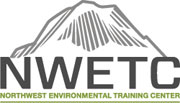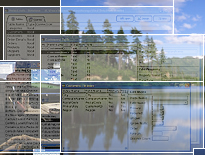|
Description: A well designed database can increase the efficiency and can eliminate errors in your data storage protocols. By reducing redundancy, and eliminating the potential for human error, you can ensure that your data remains consistent and valid, and always up to date. Access databases provide more than just a place to store your data. By creating a custom application that is specifically tailored to your project, an Access database creates the foundation through which you will quickly enter information, and more importantly, quickly retrieve answers to your questions about the data and build reports outlining the results. This two day introductory course is designed for participants who wish to gain beginning to intermediate skills in using Microsoft Access to build relational databases for collecting, organizing, and analyzing their environmental data. It is applicable to anyone that manages environmental resources, sets or responds to environmental policy, or needs to evaluate regulatory compliance. This comprehensive class uses Access 2010 to cover in-depth the use of Tables, Queries, Forms, Reports, and Macro objects through extensive hands-on exercises. These Access database subjects are taught using real-world environmental examples with actual field data. This class is recommended for anyone desiring a concentrated exposure to Access training in a powerful two day class. For additional exposure, a recommended third day, "Creating Efficient Workflows and Custom Tools in Microsoft Access (COMP-402)" is also offered immediately following this course. After completing this course, participants will be able to: - Understand concepts of database structure and design
- Create relationships between tables
- Import and export datasheets
- Perform simple queries on multiple tables
- Construct and customize forms for retrieving data
- Build macros for automating tasks
"Instructor is extremely knowledgeable and explained software very well. It was very valuable that examples were specific to environmental data." Anonymous, December 2013 "Very useful, class was hands on. I feel like I learned a lot." B. Barry, December 2013 "Access can be a useful tool for data management: the more people who know how to use it, the better. Plus the instructor is great! This is highly relevant to our work as Environmental Consultants." J. Hopp, April 2013" J. Hopp, April 2013 |
*Reduced tuition is available to employees of Native American tribes, government agencies, nonprofits, students and NAEP members.
If you have any difficulties or questions regarding registration please call 425-270-3274 ext 103.
Please wait to receive a course confirmation email, roughly one month prior to the class, before making any travel arrangements.
Intended Audience: This course is beneficial for any professional who works with a large amount of data, and needs to improve their Access skills to be able to make the most of the power of the software. Past attendees include environmental managers, engineers, field staff, scientists, and government agency staff.
Continuing Education Units: 1.30 CEUs
Course Topics
- Database Design Principles
- Relational Database Concepts
- Importing and Exporting Data
- Creating Tables
- Using Datasheets
- Data Validation
- Defining Table Relationships
- Performing Simple Queries | - Customizing Forms
- Using Calculated Values
- Parameter Queries
- Using Action Queries
- Creating and Using Forms
- Creating and Using Reports
- Designing Simples Macros
- Database Security/Permissions |
About the Instructor
 Adam Wilbert is a cartographer and database consultant. He has developed Access databases for the National Park Service as well as database and GIS solutions for small businesses and non-profit organizations. In 2007 Adam founded CartoGaia, a freelance cartography firm that merges a passion for data with aesthetic design. CartoGaia produces data management solutions and high-end custom maps for land use agencies, non-profit organizations and recreational groups. He is also the author of "Access 2007: Queries in Depth" available in the Lynda.com online training library. When Adam's not working at the computer, he's out exploring the world through the lens of infrared photography.
What to Bring
A personal laptop with Access 2010 (Access 2007 acceptable) a pen or pencil and paper if you prefer not to write in your manual.
If you are not able to provide a laptop with Access (various types acceptable, 2010 preferred) we can provide one at a fee. Please contact us at 425-270-3274 ext 103 to make arrangements two weeks prior to course.
Billing Information
In order to guarantee a space in a course, the tuition must be paid in full TWO WEEKS before the first day of the course by either check or credit card. State and government agencies paying with a purchase order are allowed payment under the two-week time frame if a copy of the purchase order is received by NWETC.
If You Need to Cancel
Cancellations*-
With 31 or more days notice, we will offer a 100% refund or credit towards a future course. The credit is good for one year and may be applied to any course.
- With 30-8 days notice, we will offer a course credit towards a future course. The credit is good for one year and may be applied to any course.
- With fewer than 8 days notice, there is no course credit available
*Please note that attendee replacement is welcome at any time
Disability Accommodations
Disability Accommodations:To request disability accommodations, please contact us at info@nwetc.org or 425-270-3274 at least 30 days prior to the event.
|










